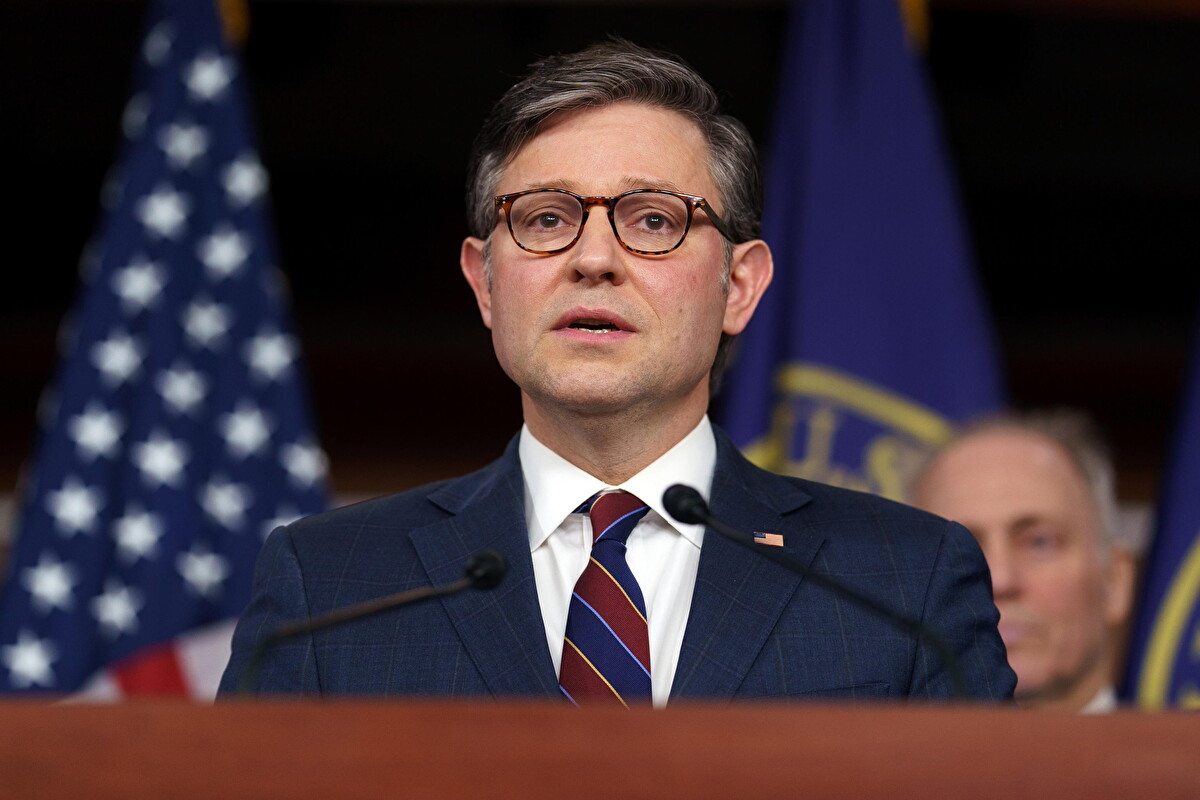President Trump pushed for House Speaker Mike Johnson to raise the top marginal tax rate and to close the carried interest loophole in a phone call on Wednesday, according to sources familiar with the matte who spoke to Reuters. The conversation comes as the Republican-controlled Congress seeks to pass legislation that would extend Trump’s 2017 tax cuts and eliminate taxes on tips, overtime pay, and social security payments. The GOP plan also calls for deep cuts to programs that support those at the poorest end of the economic spectrum, like SNAP and Medicaid.
According to the report, Trump is seeking to increase to the top marginal tax rate – which applies to every dollar earned over $2.5 million, or over $5 million for joint filers – from 37% to 39.6%. The carried interest tax (also known as the capital gains tax) is capped at 20% for assets held for over a year, which Trump would want to make equal to the income tax. The report from Reuters indicates that the conversation on Wednesday between the president and the congressman was not a one-off, with one source telling the outlet that “they’ve been talking about this for weeks.”
Tax hikes, particularly on the wealthy, have been anathema to Republican policy since last century. The last GOP president to pass a tax increase was George H. W. Bush in 1990, a move he reluctantly made amid negotiations with Democrats in Congress. His son George W. would pass two tax cuts in his first term that disproportionately benefitted the wealthiest Americans and ballooned the deficit. After Obama made those temporary measures permanent, Trump continued the Republican line on tax cuts with the Tax Cuts and Jobs Act passed in 2018. While this bill did indeed cut taxes initially on everyone, Nobel Prize-winning economist Joseph Stiglitz pointed out that the president “hoodwinked” the American public, including measures in the bill that would raise taxes over time on those at the bottom of the economic hierarchy. “All taxpayer income groups with incomes of $75,000 and under — that’s about 65 percent of taxpayers — will face a higher tax rate in 2027 than in 2019,” he wrote in the New York Times in 2020.
Trump’s cabinet has shown no indication that they would be on board with his apparent plan to change course and raise taxes on the wealthy. During his confirmation hearing, Treasury Secretary Scott Bessent, then a hedge fund manager, warned of dire consequences of the country veered away from its decades-long streak of lowering taxes on the wealthy. If we do not fix these tax cuts, if we do not renew and extend,” he told the Senate Finance Commmittee, “then we will be facing an economic calamity, and as always, with financial instability that falls on the middle and working class.”
Even Trump himself appeared to be singing a different tune on raising taxes for the wealthy as recently as last month: “I think it would be very disruptive, because a lot of the millionaires would leave the country.”
Trump and the GOP are aiming to craft and pass their bill of tax and spending cuts in the House before Memorial Day Weekend.












